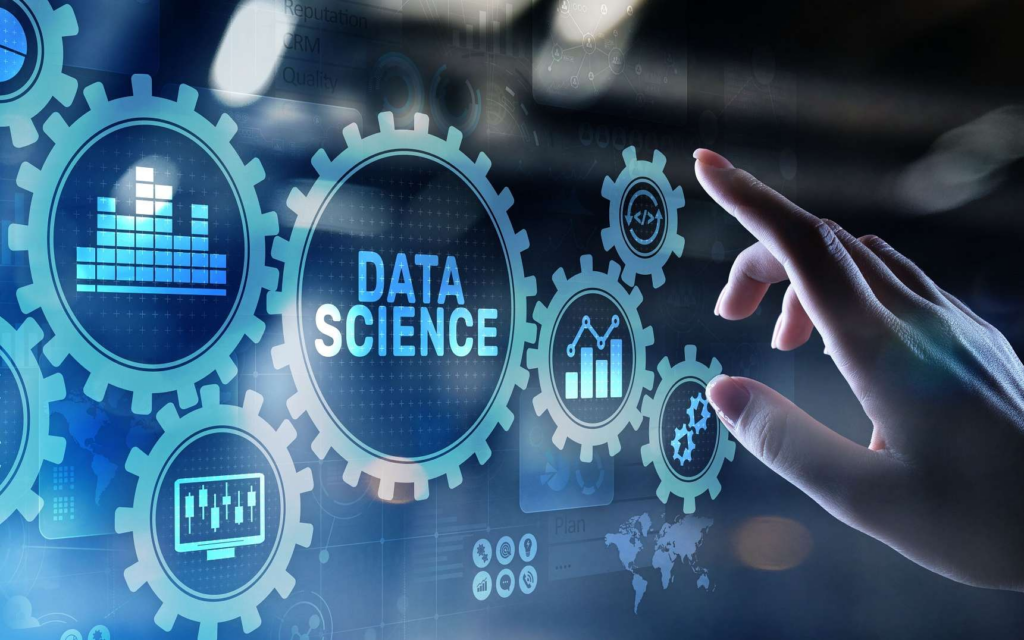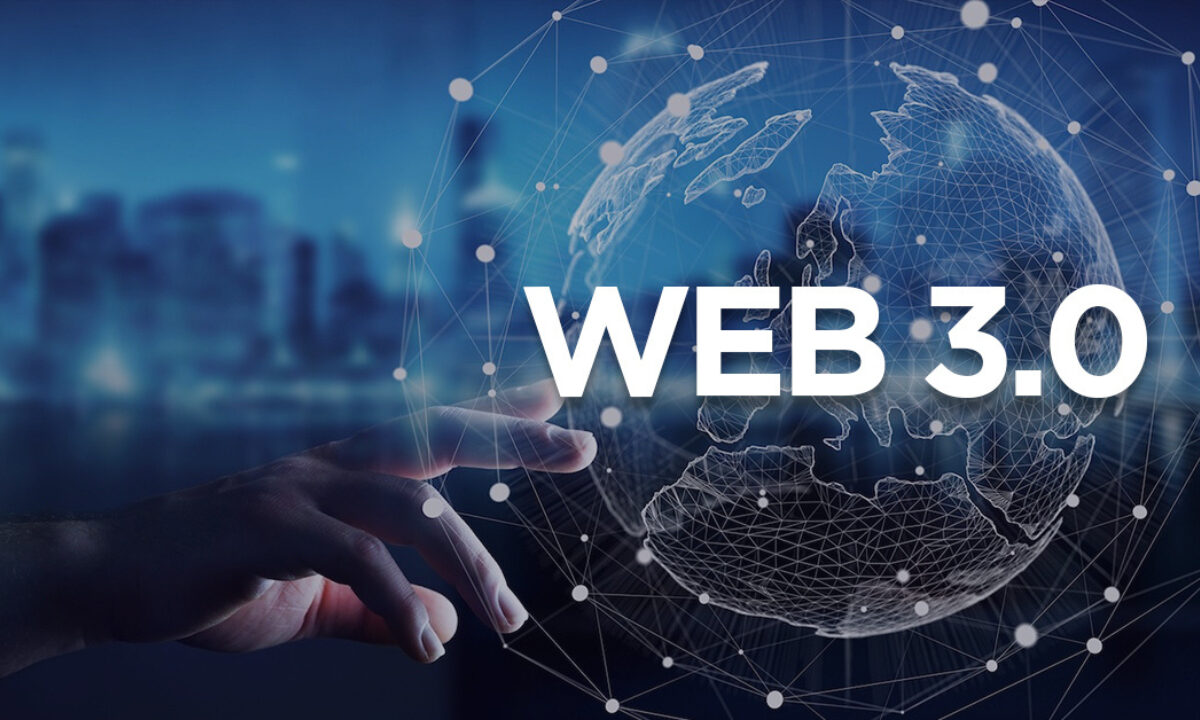Data science is one of the most popular fields in technology today. Yet, what precisely is data science? This article will answer that question and provide a crash course in data science. We will cover everything from the fundamentals of data science to its applications and potential career paths. You should have a solid grasp of what data science is and what it comprises by the end of this post.
What Is the Science of Data?
The area of data science focuses on the analysis and interpretation of data. There is a growing demand from corporations and government bodies in this fast expanding industry.
In order to describe data science, we must first comprehend what data is. The term “data” encompasses everything from quantitative information to text files. These insights can be utilized to enhance business operations or policy decisions.
The data science process follows a precise pattern: you acquire data, clean it up, analyze it, construct models from it, and then use those models to generate predictions or suggestions. To acquire a deeper understanding of the data, these procedures are frequently done numerous times.
Data science has numerous uses in today’s society. Predictive modeling (used in marketing, finance, and other sectors), machine learning (used to understand trends in vast datasets), natural language processing (used to understand how individuals communicate), and big data analytics are some common applications (used for managing massive amounts of data).
Read Also: In Geometry Dash, let’s assume the role of a square block.
Uses Of Statistics
Data science is a discipline that employs data to solve problems. Real-world applications abound, and by gaining an appreciation for some of these, you may better appreciate why it is so valuable. In this part, we will examine three examples of real-world data science applications. Also, we will share case examples demonstrating the power and utility of data science. Finally, we will describe some of the advantages that come with incorporating data science into your organization.

Data science is employed in numerous enterprises and industries. Marketing is among the most prevalent applications. By understanding how data science may be used to gain a deeper understanding of customer behavior, marketers can build more effective campaigns. In addition, data scientists are capable of analyzing client sentiment and preferences using big data technology. This data can assist businesses in making well-informed decisions regarding their products and services.
Finance is an additional common application of data science. Frequently, banks and other financial institutions seek the assistance of data scientists to monitor trends and forecast future events. In addition, they are responsible for inventing efficient algorithms that assist search engines in indexing sites more quickly. This enables corporations like Google and Amazon to enhance their earnings by giving their users with speedier results.
The healthcare industry is also utilizing data science to find patterns in patient information and enhance care coordination between physicians and nurses. By utilizing machine learning and other modern algorithms, clinicians are able to discover problems early on, resulting in enhanced treatment options and lower total expenses.
Big Data Vs Data Science
Big data and data science are distinctly separate fields. To be effective in data science, a solid understanding of statistics, mathematics, and programming is required. When discussing these topics, it is essential to make this distinction obvious, as it might be difficult for some individuals to grasp. Moreover, large data requires a different strategy than conventional database administration systems (DBMS).
Conventional DBMS solve a single problem at a time. This can be incredibly time-consuming and ultimately unsuccessful due to the impossibility of scalability. This helps you to effectively and efficiently manage massive volumes of data.
Artificial Intelligence And Data Science
Machine learning and data science are two of the fastest-growing topics in the contemporary technology industry. In this area, we will offer advice to students who wish to embark on a journey in data science. In addition, we will examine the many phases of the data science lifecycle and several practical uses of machine learning. By knowing these principles, you can gain a better understanding of how machine learning can enhance your data analysis outcomes.
The study of machine learning might be a difficult undertaking, but if you follow these guidelines, you will be well on your way to being an expert in the field. Ensure that you have a solid background in mathematics and statistics before anything else. Without these tools, it is impossible to comprehend the fundamental principles of machine learning. Second, it is essential to implement machine learning approaches with caution and precision. Your models will not perform as effectively as they could if you do not account for bias and volatility in your data sets. Lastly, be abreast of the most recent research in your industry. By keeping up with the latest developments in machine learning, you can ensure that your models perform at their peak.
Statistical Learning And Data Science
Data science is a discipline that employs deep learning and other machine learning techniques to make sense of massive data sets. You need certain qualifications, such as high math skills, in order to accomplish this. The data science lifecycle follows a pattern as well. Once data has been collected, it must be prepared for analysis. Then, you can apply data science approaches to learn more about the data set and uncover insights. You can then use these insights to enhance your business or goods.

There are numerous data science applications in the modern world. It is utilized in marketing research, financial forecasts, and health care analytics, among other applications. By learning the fundamentals of data science and its applications, you can have a greater appreciation for how this technology can contribute to the growth and success of your business.
Comprehend and manipulate data
Mastering the mathematics required to comprehend and manipulate data is one of the most crucial components of data science. This includes knowledge of equations, algebra, and statistics. Strong programming abilities are another crucial factor, as many data analysis methods include writing code.
Once you have collected your data, you must prepare it for analysis. This requires transforming your data into information that can be studied using machine learning techniques. In order to enhance their accuracy and anticipate future outcomes, these algorithms are frequently trained on vast volumes of data.
After preparing your data, you can utilize the numerous data science approaches to gain further insight into it. These techniques may include exploratory analysis, which enables you to discover patterns in your data, predictive modeling, which analyzes past performance to forecast future events, and regression models, which use prior observations to establish trends or correlations between variables.
When you have learnt everything there is to know about your data set and its consequences, you can then apply these insights to enhance your business or goods. So, you will be able to make smarter judgments that boost earnings and reduce expenses.
The Criteria For Data Science
In recent years, data science has experienced tremendous growth as a field. To be successful in this sector, it is necessary to possess the necessary fundamental skills and knowledge. To become a data scientist, it is necessary to take a course in data science that includes the fundamentals of statistics and computer science. In addition, you must possess solid programming, machine learning, and data mining abilities. In addition, familiarity with big data platforms such as Hadoop is essential, since it will provide you a competitive advantage.
Nevertheless, knowledge of these technologies is not sufficient; you must also be able to apply them successfully to solve real-world issues. Here is when experience becomes useful. Working on tough projects for companies or research institutions is an effective method to obtain experience in data science. If you have the commitment and desire to learn, becoming a data scientist is unquestionably attainable!
The Continuum Of A Data Scientist’s Life
The data scientist life cycle consists of requirements for becoming a data scientist, the stages of the life cycle, and applications of data science.













